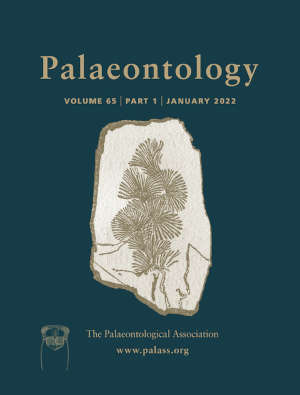Article: Pachyosteosclerosis, rhamphotheca and enhanced sensory capabilities of the premaxillae of Hyperodapedon (Archosauromorpha, Rhynchosauria): implications for foraging at the sediment–water interface
Publication: Palaeontology
Volume:
65
Part:
6
Publication Date:
2022
Article number:
e12626
Author(s):
Debarati Mukherjee, and Sanghamitra Ray
Abstract
Abstract The external morphology and microanatomy of 32 partial and complete Hyperodapedon premaxillae was examined to assess their functional attributes. This revealed morphological correlates for innervation of Hyperodapedon premaxillae in the form of posteriorly opening enlarged neurovascular foramina associated with several grooves, and a prominent neurovascular sulcus. Scanning electron microscopy shows numerous small, circular foramina in clusters along the lateroventral surface towards the anterior tip and along the ventral edge, often in a preferred orientation. These are found associated with high rugosity along the elongated anterolateral depression, and were related to nutrient supply and/or part of the neurovascular system. Selected premaxillae show extremely high bone compactness indices (especially at the anterior end) suggesting specialized osteosclerotic conditions, and dense and compact bone microstructure with almost no clear transition between the outer compact cortex and inner core. With ontogeny, the premaxillae became lateromedially thickened by deposition of lamellar zonal bone, and highly vascularized and dense from intense Haversian remodelling, suggesting pachyosteosclerosis of the premaxillae. Other characteristic features include profuse open vascular channels or a frayed margin at the anteroventral tip, and dense bundles of long and wavy extrinsic fibres. These features, along with high bone compactness, decrease posteriorly towards the naris. It is proposed that the Hyperodapedon premaxillae were covered by keratinized epithelium or rhamphotheca at the anterior end, and had heightened sensory capabilities that aided foraging for mussels and other invertebrates in soft sediments under shallow water. Such enhanced sensory capability is reported for the first time in an early-diverging archosauromorph.
